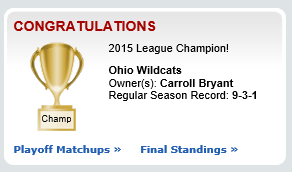The waves are riding high with this most famous pirate. A rock star name with the bad boy life-style - whiskey and women on the side. I often believe that had I lived in the right time, I too would have been a pirate. Maybe. I did serve in the Navy so, you never know.
John Rackham (26 December 1682 – 18 November 1720), commonly known as
Calico Jack, was an English pirate captain operating in the Bahamas and in Cuba during the early 18th century. (Rackham is often spelled as
Rackam or
Rackum in historical documentation, and he is also often referred to as
Jack Rackham.) His nickname was derived from the calico clothing that he wore, while Jack is a nickname for "John."
Little is known of Rackham's upbringing or early life, except for the fact that he was English and born around the year 1682. The first record of him is as quartermaster on Charles Vane's sloop
Ranger in 1718, operating out of New Providence island in the Bahamas, which was a notorious base for pirates known as the 'Pirates' republic'. Vane and his crew robbed several ships outside New York, then encountered a large French man-of-war. The ship was at least twice as large as Vane's sloop, and it immediately pursued them. Vane commanded a retreat from battle, claiming caution as his reason. Jack Rackham quickly spoke up and contested the decision, suggesting that they fight the man-o-war because it would have plenty of riches. In addition, he argued, if they captured the ship, it would place a much larger ship at their disposal. Of the approximately ninety men on the ship, only fifteen supported Vane in his decision. Vane declared that the captain's decision is considered final, however, despite the overwhelming support for Rackham's cry to fight, and they fled the man-o-war.
On 24 November 1718, Rackham called a vote in which the men branded Vane a coward and removed him from the captaincy, making Calico Jack the next captain. Rackham gave Vane and his fifteen supporters the other sloop in the fleet, along with a decent supply of ammunition and goods
Rackham made a career of plundering small vessels close to shore once he became captain. He and his crew captured the
Kingston, a small Jamaican vessel, and made it their flagship. They made several conquests in the West Indies, taking a couple of large ships off of Bermuda.
In 1719, Rackham sailed into Nassau in the Bahamas, taking advantage of a general amnesty for pirates to obtain a royal pardon and commission from Governor Woodes Rogers. Rogers had been sent to the Bahamas to address the problem of pirates in the Caribbean who had started to attack and steal from British ships.
In December, he captured the merchant ship
Kingston. The
Kingston had a rich cargo, and promised to be a big score for Rackham and his crew. Unfortunately for him, the
Kingston had been taken within sight of Port Royal, where outraged merchants outfitted bounty hunters to go after him. They caught up with him in February 1719, while his ship and the
Kingston were anchored at Isla de los Pinos off of Cuba. Rackham and most of his men were on shore at the time, and they escaped capture by hiding in the woods - but their ship and rich trophy were taken away.
Captain Charles Johnson describes how Rackham stole a sloop in his 1722 classic
A General History of the Robberies and Murders of the most notorious Pyrates. Rackham and his men were at a town in Cuba refitting their small sloop when a Spanish warship charged with patrolling the Cuban coast entered the harbour, along with a small English sloop which they had captured. The Spanish warship saw the pirates but could not get at them at low tide, so they anchored in the harbour entrance to wait for morning. That night, Rackham and his men rowed over to the captured English sloop and overpowered the Spanish guards there. As dawn broke, the warship began blasting Rackham's old ship, now empty, as Rackham and his men silently sailed past in their new prize.
Rackham and his men made their way back to Nassau, where they appeared before Governor Rogers and asked for the royal pardon, claiming that Vane had forced them to become pirates. Rogers hated Vane and chose to believe them, granting them the pardon and allowing them to stay. Their time as honest men, however, did not last long.
In September 1720, the Bahamas' Governor Woodes Rogers had issued a proclamation declaring Rackham and his crew as pirates - although it was not published until October 1720. After publication of the warrant, pirate hunter Jonathan Barnet started in pursuit of Rackham, who was cruising near Jamaica capturing numerous small fishing vessels and terrorizing fishermen along the northern Jamaican coastline.
Rackham had come across a small vessel crewed by nine English pirates, and they joined Rackham on his ship for a bout of drinking while at anchor (and intoxicated) at Bry Harbour Bay in Jamaica, October 1720. Barnet's sloop attacked Rackham's ship and captured it after a fight presumably led by Mary Read and Anne Bonny. Rackham and his crew were brought to Spanish Town, Jamaica, in November 1720, where they were tried and convicted of piracy and sentenced to be hanged.
Rackham was executed in Port Royal on 18 November 1720, his body then gibbeted on display on a very small islet at a main entrance to Port Royal now known as Rackham's Cay.
Source:
Wikipedia
This work is released under CC 3.o By-SA:
Creative Commons
















